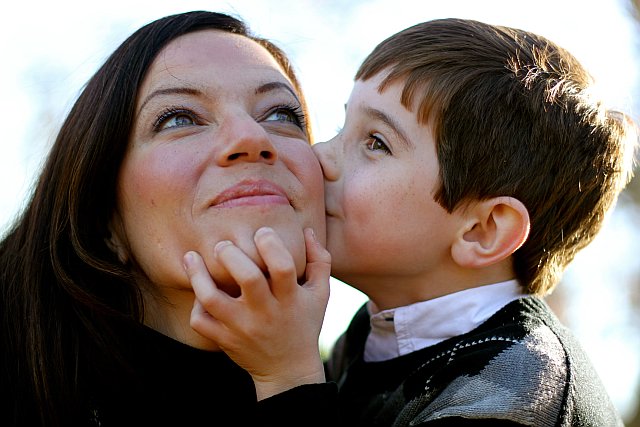I am a Suicide Survivor: What I wish everyone knew
/Last night, like everyone else I knew who logged onto social media after dinner, I was shocked to hear the news of Robin Williams' death by suicide. Though the word is not official, and none of us on the outside, as in those of us not closely connected with the Williams family, will every truly know what happened, I would like to come out as a two-time suicide attempt survivor, and as a person who has battled depression for most of my adult life, say it's time we all talk about depression, manic depression, and all other forms of mental illness (though I hate this term, more on that later), which, rather than suicide, is what really took the life of one our time's greatest comedic geniuses. I couldn't sleep at all last night thinking about it, namely about how I and a few close friends and loved ones asked the question: How could a person I never met have made such an impact on my life? For me, Robin Williams helped define who I was at a time when I was desperately trying to figure that out. As a teen obsessed with books and poetry, The Dead Poet Society was pretty much my church. Robin Williams' character John Keating was the ultimate English teacher. He was all of our teachers--or the teachers we wished we had.
And throughout the course of Williams' career and my growing up, he taught me other things as well. He was outspoken with his battle with addiction and his attempts to control his manic depression. He showed us that people with mental illness aren't always what we expect them to look or even act like.
For much of my adult life, I have never talked about my own suicide attempts or major depressive episodes. Was I ashamed? Yes. Did I think it would hold me back from life? Yes. Did I think people would judge me? Yes.
And then I thought last night, if I can't talk about it, and I am writer and all I basically do is talk and write about various stuff--who else isn't talking about it? I am pretty sure the answer is: a lot of us.
Over the years, I have known several people who have attempted and succeeded in ending their own lives. I have several close friends and family members who suffer daily from depression, and I know many parents of children who struggle daily with their children's mental illness.
And here's what I wish everyone knew about those suffering from mental illness:
1. Depression, manic depression, anxiety, or any other mental illness is not something you can just power through. It's not something that you can fix on your own. It's not a personal defect. It's not selfish. It's not a moral issue. It's a disease. You need medical treatment, therapy, and like any other disease--heart disease, diabetes, etc.--you need good nutrition, sleep habits, and exercise, and constant vigilance. And if it is not taken care of or treated you can die from it. Suicide, while it is an action inflicted upon by oneself, is not an action in which the infirmed has any control over once the disease has taken over.
2. People with mental illness can smile, show up for work, exercise, and look seemingly perfect to the outside world. It doesn't mean they're not depressed or that their other symptoms should be overlooked. When I attempted suicide my senior year in college, I was an RA. I had straight As. I had a boyfriend and more friends than I could keep up with. I worked. I ran six miles a day. I was high functioning. But, I got up every day and looked in the mirror and saw a giant black hole. I heard a voice inside my head telling me, "Just die. You'll never amount to anything. You're ugly. You'll never be smart enough. Pretty enough. Just give up. Now." I fought and fought the voices back. I tried. But, no matter what I did I couldn't beat them back by myself. The night I swallowed an entire bottle of pain killers, my friend Greg just happened to be in my suite and found me. He saved my life. He acted quickly. And I got lucky. Incredibly lucky.
3. People with mental illness need friends and family nearby for support. In the hospital when I started to come out of it, I was so ashamed of what I had done I was scared to tell my own mother. Terrified. Did I think she would judge me? Shun me? I know the real answer would have been an emphatic: No. But, I was not in my right mind. I was ashamed. And who knows what my 21-year-old-depressed-self thought. All I know was I desperate that absolutely no one know about what I had done. I had my few close friends swear to secrecy. My RA advisor and friend, a friar, Brother Jim, showed up at the hospital with a smile and a long hug. He and my boyfriend were my only visitors. I spoke to my brothers and father over the phone and assured them I was fine. If I knew then that the shame I felt about my depression was only adding to my depression, I would have done things so differently. When my friend Brian and boyfriend picked me up from the hospital, I kept begging them to assure me no one knew where I was. I didn't want anyone else to see that I wasn't perfect.
4. Family members of the mentally ill need friends and family nearby for support. In my community and church, when someone gets cancer or a degenerative disease, has a baby, loses a loved one, or gets in an accident, a group of us get together and go to Sign-up Genius and sign up to bring meals to the family in need. We also sign-up for carpools to get kids to practices and school, and we even do "sit withs"--where you sign up to sit with the infirmed and just talk or keep the sick person company. It's a lovely thing. However, I have never once noticed someone post a request for help because he/she, a spouse, or a loved one is suffering from mental illness. When a loved one can't get out of bed, go to work, or function, it takes an enormous toll on a family. When someone requires psychiatric care, it requires multiple hospital visits and a tremendous amount of daily effort--and money. Yes, money. Psych stays can cost tens of thousands of dollars. Outpatient can cost thousands. But, when someone has a mental illness such as severe depression or manic depression or anxiety, we don't treat it like it's serious. We don't talk about it all. Until the sick people kill themselves. Then we show up for the family with a casserole and a carpool list. Whenever that happens I just want to scream: It's too damn late for that!
5. We need to start talking about it. As long as there is shame, there is stigma. As long as there is misunderstanding, there is never going to be healing. Families who can't come out and say: "My son/daughter/husband/wife is struggling with ________" we can't help them. We need to leave space so people can talk about it. So they aren't ashamed. So families of loved ones can get the support they need. We need to have more compassion. More love.
6. Our health and social policies regarding mental illness have to change. When a friend's husband killed himself before Christmas, she was struggling to get him into treatment. She was desperate. She was faced with a general sense by the medical community that the issue could wait. Trying to get in to see a doctor was nearly impossible. She had to wonder if he had a brain tumor, and not a disease that couldn't show up on an MRI, like depression, he would have been seen sooner. After he killed himself, and she was haggling with the insurance company to pay his life insurance, she discovered she wouldn't be getting any. Even though her attempts to get him treatment over the years were well documented--and paid for by medical insurance--once he killed himself, even if it was because of a medical condition/disease like depression, she was shit out of luck. If our laws and medical community don't acknowledge the seriousness of the disease than how will our society ever get to that place?
7. We need another term for depression or manic depression or anxiety or even mental illness. I think part of the stigma is in the name. Depression sounds like a mood. A phase. Someone can't find a sweater in the mall and will say: "I am so depressed. The Gap discontinued my fav sweater." The word is so overused it has lost its impact. And it is still linked to a long history of negative connotations. People who suffer from anxiety are "anxious" as in: "She's just anxious. She has a test coming up." There is a big difference between being anxious for a test and not being able to leave your house for ten years because of a serious phobia. And the notion of "the mentally ill" means that there is something other or separate about them. And the use of the word "ill" is archaic. We don't call someone with heart disease: Heart ill. Or diabetes: Sugar ill. Or liver disease: Liver ill. No they have diseases. If we named these diseases something other, maybe we could talk about them and take them as seriously as they deserve to be treated.
8. There is hope. My heart goes out to Robin Williams and his wife and children. My heart goes out to every person who has ever lost a loved one to suicide. And my heart goes out to every single person who woke up today and heard the voice inside their head saying they're not good enough, and are fighting the fight anyway. And for all the families of those who support and love and care for them, my heart goes out to you. You are all warriors. You're all brave. You're all strong. And we wouldn't be here without you. Take care of you. To my own family, friends and loved ones. I am here, because of you. And life is beautiful. It is worth living. And, if you're someone who needs help: Tell someone. Right now. Today. There are hotlines. There are hospitals. There are trained professionals who can help you. You don't need to suffer alone or in silence. You don't have to live in the darkness anymore. Go to the light. Whenever possible, go to the light. It makes all the difference. You are important. You matter. Your life will be more extraordinary than you can ever imagine. Just say the word. Someone will answer. Because someone loves you and you mean the world to them.

